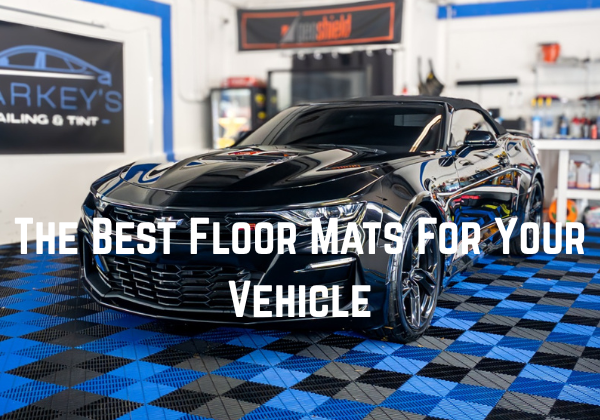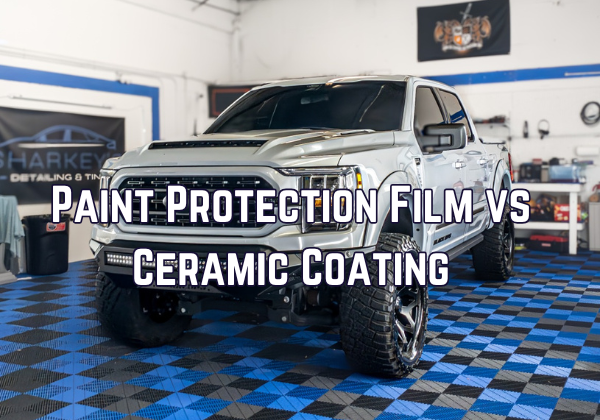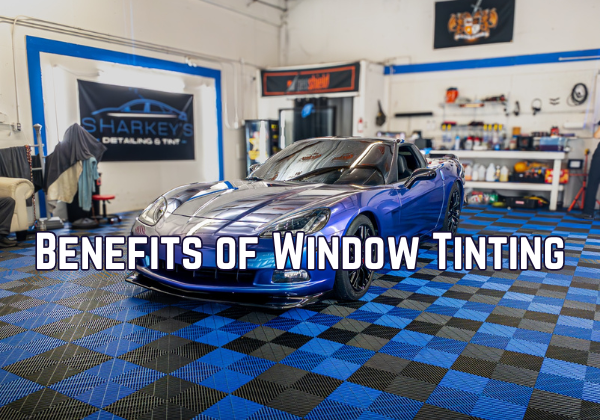Why Professional Ceramic Coating Beats DIY Kits
Ceramic coating protects your car’s paint like armor. It repels water, resists UV rays, and adds a slick, glossy shine. But here’s the catch: not all coatings are created equal.
If you’re wondering whether to go for a DIY ceramic coating kit or pay for a professional-grade application, this guide breaks it down clearly. Spoiler: professional coating wins in almost every way that matters.
Key Takeaways:
- Professional coatings last longer, up to 5–9 years.
- Trained detailers properly prep the paint, ensuring better bonding.
- DIY kits are often weaker, less durable, and prone to streaking.
- Professionals use high-grade ceramic formulas that aren’t sold to the public.
- Application errors with DIY kits can permanently damage your paint.
What Is Ceramic Coating?
Ceramic coating is a liquid polymer applied to a car’s exterior. It chemically bonds with the factory paint to create a protective, hydrophobic surface.
That means:
- Water beads off instead of sticking.
- UV rays don’t oxidize the paint as easily.
- Dirt, brake dust, and bird droppings don’t stick as much.
It’s not a wax or a sealant, it’s harder, longer-lasting, and chemically resistant.
DIY vs. Professional Ceramic Coating: Side-by-Side Comparison
| Feature | Professional Coating | DIY Kit |
|---|---|---|
| Durability | 5–9 years | 6 months to 2 years |
| Prep Work | Full paint correction, decontamination | Usually just a wash or clay bar |
| Application Method | Controlled environment, trained expert | Home garage or driveway |
| Formula Quality | High solids (70–85%) | Lower solids (20–50%) |
| Finish | Deep gloss, mirror-like finish | May appear hazy, streaked |
| Warranty | Often comes with a 3–7 year warranty | No warranty |
| Cost | $800–$2000 (depending on package) | $50–$200 |
Let’s Break It Down Further
1. Prep Work is 80% of the Job
Before any coating is applied, the surface must be flawless. That means:
- Paint decontamination (removing iron particles, tar, sap)
- Machine polishing to remove swirls and oxidation
- Panel wipe with isopropyl alcohol to remove residues
DIY users often skip or rush these steps. That leads to coatings that don’t bond well, peel prematurely, or lock in scratches.
Pro Detailers Know: Even a small paint imperfection becomes magnified once ceramic coating is applied. Professionals won’t coat unless the paint is perfect.
2. Formula Strength and Quality
Professional-grade ceramic coatings are made with high concentrations of SiO₂ (silicon dioxide) or TiO₂ (titanium dioxide). These harden into a nearly glass-like layer.
DIY kits contain much lower concentrations. This makes them easier to apply, but also far less durable.
Pro coatings have higher "solid content," meaning more protection, more gloss, and longer life.
3. Application Environment Matters
Professional coatings are applied in controlled indoor environments. Temperature, humidity, and lighting are all optimized.
Most DIYers apply coatings outdoors, in garages, or on driveways where:
- Dust settles on the paint during curing
- Temperature and humidity affect the cure
- Missed spots and streaks are hard to see
This leads to inconsistent coverage and less protection.
4. Protection Levels Aren’t Equal
Professional coatings protect against:
- UV rays
- Bird droppings
- Tree sap
- Bug splatter
- Light scratches
- Road salt and chemicals
DIY coatings offer some of this, but they wear out quicker. They also don't resist scratches as well and may break down under strong chemicals.
5. Longevity: How Long Will It Last?
| Coating Type | Realistic Lifespan | Maintenance Needed |
|---|---|---|
| Professional Ceramic | 5–9 years | Annual inspection or topper |
| DIY Ceramic | 6–18 months | Frequent reapplications |
With DIY kits, you’ll need to reapply regularly. That adds more cost and labor over time, and increases the risk of mistakes.
What Happens If You Mess Up a DIY Coating?
Here’s the truth: ceramic coating is semi-permanent. If you apply it wrong, you may end up with:
- High spots (patchy, raised sections)
- Streaking and haze
- Trapped contaminants under the coating
- Coating failure (starts peeling or flaking)
Fixing this requires polishing or even wet sanding, and that usually means going to a pro anyway.
DIY Coatings Are Better Than Nothing, But Not Equal
To be clear: some protection is better than none. If your budget is tight and you’re okay with short-term results, DIY kits can work.
But if you want:
- Long-term protection
- A flawless finish
- Peace of mind
- Enhanced resale value
Professional ceramic coating is the way to go.
Expert Tips for Maintaining Any Coating
Whether you go pro or DIY, follow these tips:
- Use pH-neutral car wash soap
- Avoid automatic car washes (especially brushes)
- Dry with clean microfiber towels
- Use a ceramic maintenance spray every few months
- Don’t wax over ceramic coating, as it can reduce the hydrophobic effect
Final Thoughts: Is Professional Ceramic Coating Worth It?
If you care about long-term protection, a high-gloss finish, and preserving your vehicle’s value, professional ceramic coating is worth every penny.
You’re not just paying for the product, you’re paying for:
- Expert prep work
- High-quality materials
- Proper installation
- A job done right the first time




